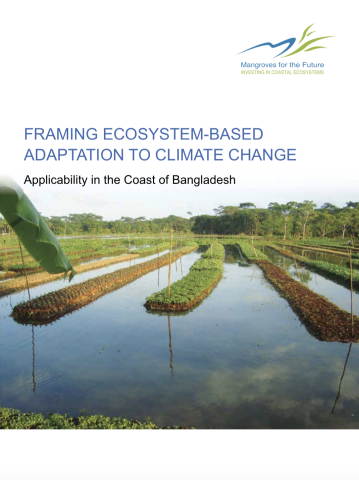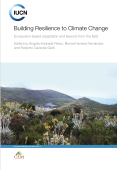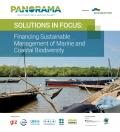
The recent increase in exposure to natural hazards among the communities of Bangladesh is linked to the new generation of threats posed by climate variability and change resulting from anthropogenic activity. With its huge population, and as a largely rural, least developed country, adaptation is the priority option for Bangladesh to moderate the adverse impacts of climate change. One of the key reasons for the country’s higher exposure to climate-induced threats is the fact that its people are heavily reliant on climate-sensitive natural resources. Natural ecosystems (such as wetlands, coastal ecosystems and forests) are highly sensitive to climate change and are often affected negatively, resulting in reduced ability to deliver ecosystem services to support biodiversity and livelihoods.
This case study, Framing Ecosystem-based Adaptation to Climate Change: Applicability in the coast of Bangladesh, describes six different types of EbA currently being practiced in the coastal zone of Bangladesh; and an analysis is made in line with the ecosystem services derived from such ecosystem-based interventions, including relevant policy and institutional aspects. This means restoration, enhancement, conservation and wise use of natural resources (ecosystems) with the active engagement of local communities so as to enable natural ecosystems to function properly and deliver services for the benefi ts of nature and local livelihoods. This in turn builds societal resilience to the impacts of climate change. Finally, the report suggests approaches for effective planning, design and implementation of EbA schemes aimed at building social-ecological resilience in the face of shocks and uncertainties associated with climate variability and change in the coastal zone of Bangladesh and beyond.



